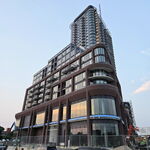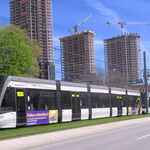No one here has said the cost to built a subway has gone up 40% between 2007 and 2012. The use of long-term inflation rates for future predictions doesn't mean you can apply this for every time period. The construction price index hasn't risen that much from 2008 to 2011 compared to other years. There was a recession. How much did condo costs rise between 2002 and 2007? Bet it was more than 14%.
For example, look at MTO's tender price index -
http://www.raqs.merx.com/public/bulletin/articleView.jsf?articleId=15874851#
There has been virtually no overall increase in the most recent 3 years ... however the previous 3 years it went up 25.9% - 8% per year!
This is one of the reasons Spadina might actually come in at/under budget. If you look at the value of the major contracts, almost all of them have come in below the estimate, because construction prices have actually dropped in the last few years. But this is a short-term situation and it would be unprofessional not to assume long-term average increase in the costs of inputs.
I found
http://www.peelregion.ca/finance/dashboard-eco/constr-proj.htm interesting reading as well, looking at the cost increases of various inputs.




